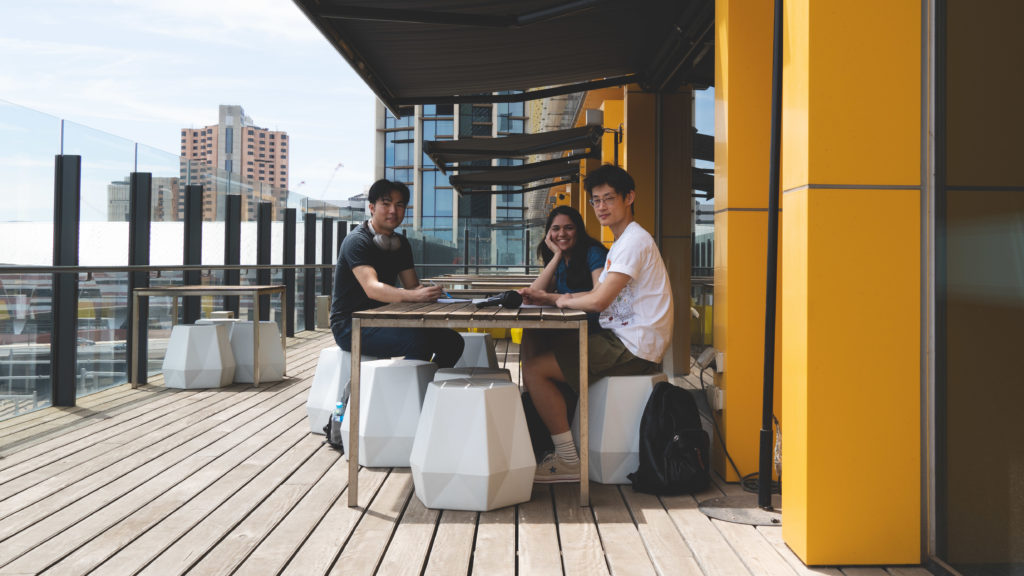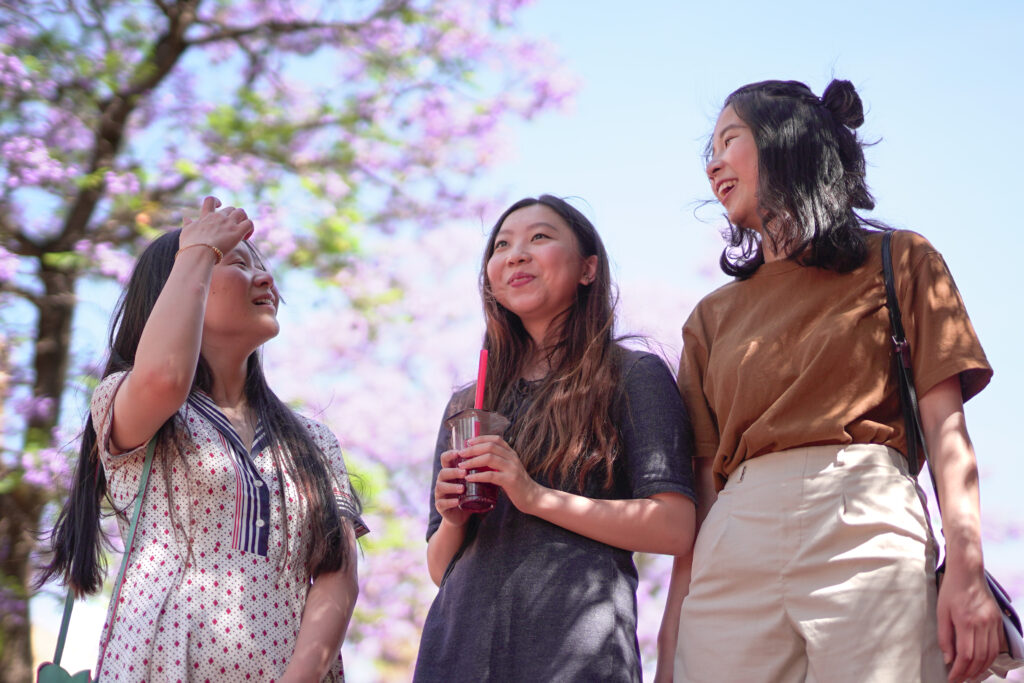Friends bring joy, meaning and connection into our lives. They are there to celebrate the good times and provide support through the bad. Research has shown that having strong social connections can improve your physical health and emotional wellbeing, and even extend your life expectancy.
Even if you have a strong network of friends back home, it’s important to make friends here in Australia. These friends will be there to share new experiences, make memories and offer a helping hand when you need it. But how do you make good friends? If you’re unsure of how to start connecting with people, we’ve put together a step-by-by guide to building and maintaining friendships while studying in Australia.
How to make friends
1. Work out where to find friends
Meeting new people is the first step to making friends. If you’re wondering how to find friends, know that as a student, you have many opportunities to meet people. You can start by introducing yourself to other students in your lectures and classes. Clubs and societies are also great places to meet people with similar interests. Most clubs and societies host regular gatherings, which give you a chance to get to know people. You can also join a social sport or activity such as volleyball, basketball or netball. These are usually run by educational institutions, local community centres and community sporting clubs.
Medibank is a proud partner of Parkrun – a free, weekly, community event held every Saturday. Everyone is welcome, and you can walk, jog, run, volunteer or spectate!
As well, there are a few apps that you can use to meet people. Bumble BFF follows a similar structure to most dating apps but is used for making friends. On Meetup, you can join online groups with similar interests and attend events and meet-ups in your local area. If you’re getting together with anyone who you have met online, remember to stay safe and let someone else know about your plans.
2. Get the conversation flowing
The easiest way to start a conversation with someone new is to simply introduce yourself. It’s normal to feel a little nervous at first, but just remember that the other person is probably feeling grateful that you began a conversation with them. If you’re both in the same class, you could start by talking about the classwork or a recent assignment. Likewise, if you’re at a club or society meet-up, you could ask them how they got into that activity or interest. It helps to find something in common that you can both talk about.
The conversation might flow naturally from there, but it’s always good to have some back-up conversation topics. You might like to ask someone about other classes they are taking or whether they are attending an upcoming student event. If you’re chatting to local students, we have some more ideas on what to talk about with Australians.
3. Chat to them more than once before taking it further
Just like when you’re dating in Australia, it’s important to have a few conversations with a potential new friend before suggesting something like a one-on-one coffee or lunch. For this reason, it can be easier to meet people with whom you attend weekly classes, events and activities.
In your next few conversations, you can start to get to know them better and build a rapport. You might start talking about different topics such as your family, hobbies and life outside of study. Make sure that you ask them lots of questions about themselves, too. If you’re speaking to a local student, don’t be surprised if you engage in some humour at this point as well. You can read all about Australian humour here.
4. Ask them to spend time together
Once you have spoken to someone a few times, you might like to ask them to spend time together. You can keep things casual by mentioning that you’re grabbing a coffee after class and ask if they would like to join you. If you share a common interest, such as hiking, then you could ask them if they would like to go with you. You can say something as simple as, “I’m thinking of going on a hike this weekend, do you want to come?” It’s a good idea to make plans for a certain day and time so that neither of you is wondering when to bring up the idea again.
5. Spend time together one-on-one
Spending time together one-on-one is an important step in cementing a friendship. Depending on your interests, there are lots of different things that you can do with your new friend. You might like to check out an upcoming event in your city, go for lunch at a cafe, watch an interesting film or simply hang out on campus. If you both enjoyed your time together, you can finish the catch-up by mentioning that you had fun and that you would love to do something again.
6. Make the effort to stay in touch
Between classes, study and part-time work, it can be difficult to find the time to catch up with someone regularly. However, if you want to maintain a friendship, it’s important to reach out and connect. You don’t need to talk every day or even every week, but a new friendship does need frequent contact to continue.
Signing up for a weekly activity together, such as a yoga class, is a good way to catch up regularly. If you decide to introduce your friends to each other, this may also lead to a larger friendship group. If you can’t get together, you can always keep in touch through texting, email, WhatsApp or Facebook Messenger.
If you are struggling with feelings of loneliness or social isolation, you should reach out to your educational institution’s support services or a medical professional.





